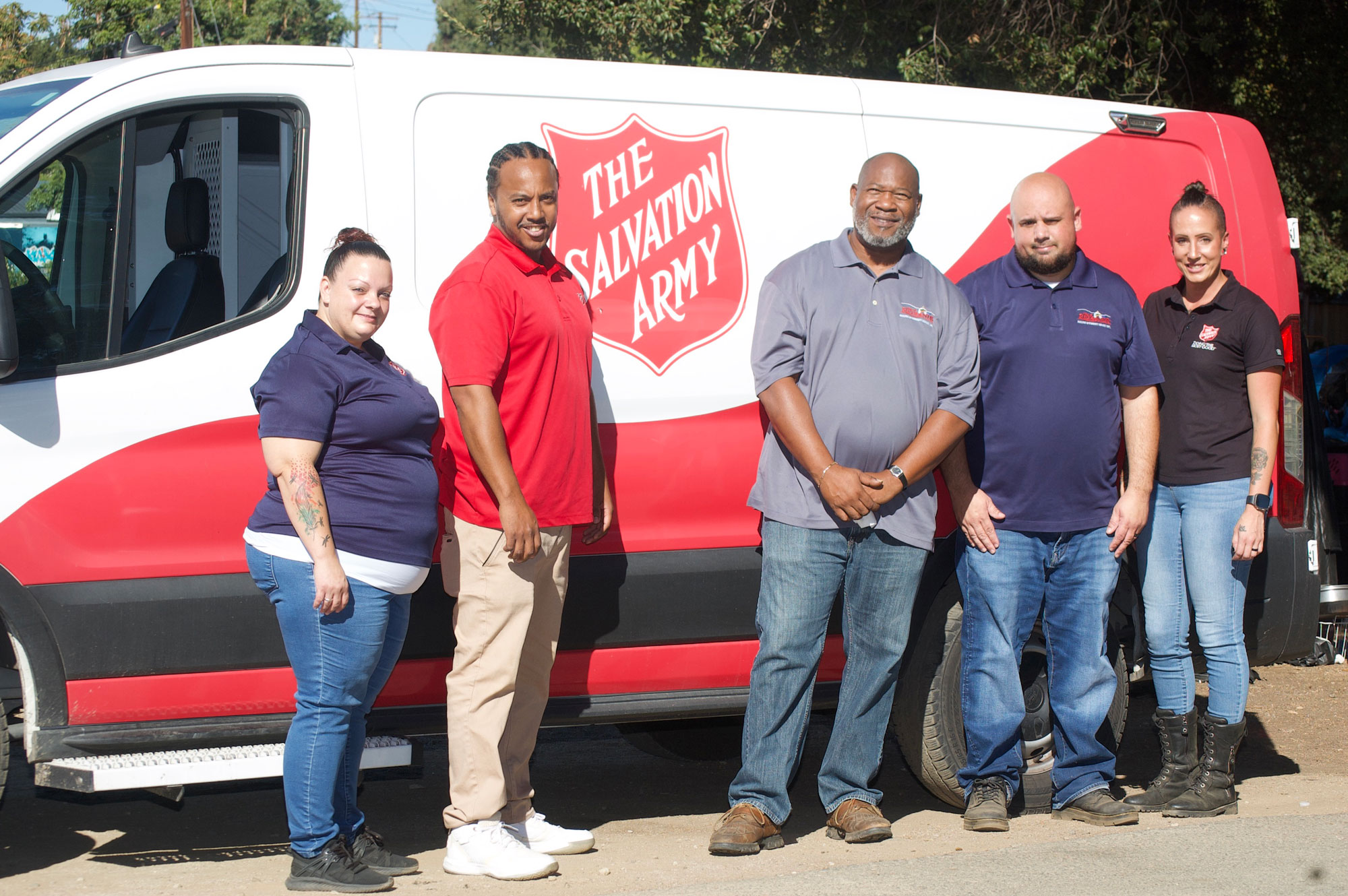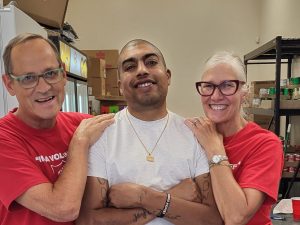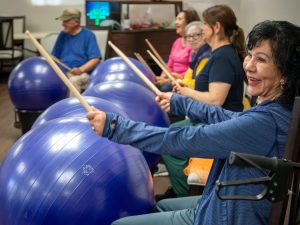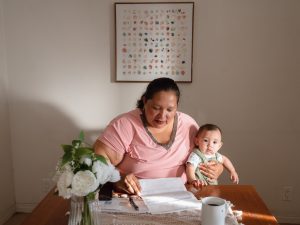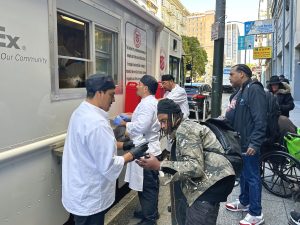On a recent outing of the Dignity Health Street Medicine and The Salvation Army’s Homeless Outreach Team, the collaborative team of clinicians and community health workers encountered an unhoused man with a foot swollen to the point of cellulitis. The team’s doctor told him if he didn’t go to the ER, he’d likely die.
Thanks to the partnership between clinicians and The Salvation Army, the team was able to transport the patient directly to the emergency room.
“He got his infection under control, and they were able to treat him,” said Patty Herrera, manager of community health for Dignity Health on the California Central Coast.
The collaboration is one of the ongoing ways the Homeless Outreach program is making an impact in California, carrying out the mission of a $1,059,712 grant Dignity Health gave The Salvation Army in August 2020 to establish the program, which reaches four regions in California: Fresno/Merced Central Valley, along with San Joaquin, San Bernardino and San Luis Obispo counties.
The initiative focuses on delivering vital support to people experiencing homelessness, with a clear goal to connect individuals to essential resources to facilitate their transition toward permanent housing. Along the way, the program has expanded its impact beyond the initial goal, resulting in greater collaboration among community groups which has facilitated a higher awareness and distribution of vital resources.
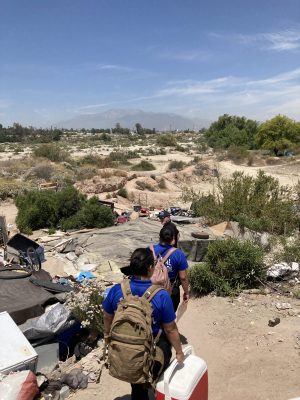
“In recent years, the most influential ministries have been those that directly connect with individuals right where they are,” said Commissioner Douglas Riley, Territorial Commander of The Salvation Army in the Western U.S. “The Dignity Health grant has opened doors to many other collaborations, allowing us to maximize this partnership.”
CommonSpirit Health System Director for Community Health, Integration and Housing Ashley Brand said initially the program drew some inspiration from similar programs, like The Salvation Army’s Street Level program in Seattle.
“It was an opportunity to look at what The Salvation Army had done in other markets and see what we could explore in our markets,” Brand said. “It was a long process to figure out what types of solutions would be meaningful for different communities.”
Brand added that relationship building on the front-end and getting buy-in at the local levels, both for The Salvation Army and Dignity Health, showed the Homeless Outreach program would add value for unreached community members experiencing homelessness.
“It really is that collaborative effort where you have multiple entities coming to the table to identify and create a shared model, achieving goals and objectives, but putting our community members—our patients experiencing homelessness—first,” she said.
The grant helped The Salvation Army acquire mobile outreach vehicles, fully equip them, and transform them into mobile offices furnished with Wi-Fi—an essential resource for connecting with a population that frequently lacks access.
“We’re really operating a physical beacon of hope on wheels,” said Naomi Goforth, Director of Program at The Salvation Army San Bernardino Corps, which serves California’s largest county. “People know that if they see the van and the shield—it’s a sign of hope and help.”
When the vans are in operation, a team of outreach specialists and caseworkers address immediate needs, like providing hygiene kits, clothing and vouchers for things like utilities and transportation.
They simultaneously focus on building trust and rapport while identifying an individual’s next step in search of housing, which often looks like helping them obtain personal documentation or connecting them to other community resources, sometimes at resource fairs.
During outreach in San Bernardino in September 2022, the team connected with a father of five who was living in his car with his children. He explained he had completed an online portal for housing but was stuck because he did not have birth certificates for each of his family members—a factor necessary for some supportive housing programs.
The team provided birth certificate vouchers—something the man said he didn’t realize was possible—which kept the family moving forward in their journey to permanent housing.
“People know that if they see the van and the shield—it’s a sign of hope and help.”
Naomi Goforth
It’s through these kinds of interactions that 49 individuals have ultimately secured permanent housing, and 24 others have transitioned into temporary housing across the four reporting regions from August 2022 to June 2023. During that time, an additional 438 individuals were placed in emergency housing programs and 306 individuals received referrals to partner agencies for assistance with housing and other resources.
“To meet people in the midst of their need and have the capacity to work through their unique challenges and circumstances has been an impactful way to minister to those without a home across California,” said Riley.
The Mobile Homeless Outreach vans have also served as a touchpoint for increased community engagement. In San Luis Obispo County, the collaboration with Dignity Health Street Medicine has resulted in 6,800 boxes of opioid overdose reversal medication Narcan being distributed between August 2022 and February 2023, according to a quarterly report by The Salvation Army San Luis Obispo Corps.
Additionally, more than 30 people received medical care and were connected to detox and recovery services through collaboration efforts during that time frame.
“By not only providing medical assistance but continuously ministering to people and coming back to follow up, we develop relationships that can prevent homelessness and work towards better health of the communities at large,” said Fresno Citadel Corps Officer Major Carole Abella.
This collaboration also helps Dignity Health’s medical residents, who Herrera said often are encouraged to participate in the outreach efforts.
“It’s a great opportunity for them to learn,” she said. “An individual that you might see in the ER, or our local health centers, might not be someone that you think might live underneath the bridge or near the riverbed. Overall, it’s been really a great partnership.”
Stockton Outreach Specialist Sean Mefford said the Mobile Homeless Outreach has proven to be an effective method for forging partnerships and seeing positive change within San Joaquin County.
In March 2023, Alicia was residing under an overpass in the nearby city of Tracy. Mefford and the team collaborated with City Net, a nonprofit organization specializing in homeless outreach, to provide temporary housing for her in its shelter.
Following a brief stay at the shelter, Mefford assisted Alicia in gaining entry into the SPICE program, which offers low-income housing for disabled individuals experiencing homelessness. Today, Mefford said Alicia has found permanent housing in a three-bedroom house with roommates.
“Dignity Health has given us the seed money to jumpstart this whole program,” he said. “If it wasn’t for them, I don’t even think that we would even be able to discover all of these capacities to serve underserved populations.”
One of the ways Mefford has increased engagement in San Joaquin County is by bringing beneficiaries of Adult Rehabilitation Center (ARC), The Salvation Army’s 180-day residential program, along for outreach. Mefford said that the ARC prepared and distributed 895 lunches during their outreach efforts in the spring of 2023.
“The men at the ARC love to go out with us,” he said. “It helps to bring someone along who can demonstrate the success of The Salvation Army programs—and carry that sense of empathy.”
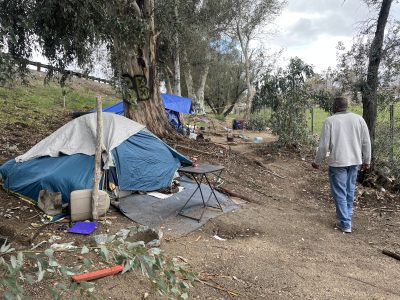
Mefford said the act of continued engagement and returning when they say they’re going to has built lasting trust. “We often go out in the morning, and then in the afternoon, just to show them we’re serious and prepared to help,” he said.
Territorial Director of Corporate Engagement Maria Todaro said collaborations with partners like Dignity Health are fundamental to offering an integral range of services to people in need.
“The gift has enabled and positioned The Salvation Army to duplicate the successful Street Level model across California, and has led to the creation of brand new impactful community partnerships that we may never have had otherwise,” she said.
Looking ahead, each Homeless Outreach team plans to continue fostering community relationships. Team members said the funding has given them a platform to learn the best way of interacting with others, and improving to better suit needs as they’re recognized.
“Creating and improving relationships with other outreach operations has really been an entry point for the sustainability of the program,” said Goforth.
Brand echoed this sentiment, adding: “There is a level of trust, so we can have hard conversations,” she said. “If something’s not working, we can be really transparent on both sides to talk about ‘How do we improve the overall interaction for the people we’re serving?’ That’s first and foremost, fundamentally, what we’re focused on—and how do we achieve it together?”
Goforth added the greatest gift from Dignity Health has been the opportunity to navigate through the challenging realities of homelessness, developing connections to further advance the mission and becoming equipped with the capacity to sustain success and better serve individuals in the future.
“I just think this speaks volumes to what organizations can do when they work together with a shared mission to serve our vulnerable communities,” Brand said. “Seeing the collaborations, like with Patty in the Street Medicine Team, I think just really accelerates the work.”
With reporting by Haley Osness and Hillary Jackson
Do Good:
- See how The Salvation Army fights homelessness.
- What makes a good story? Where can you find “the magic” in one? And how do our values integrate with our own story? Take our free email course and discover exactly how to find your voice, own your story and share it with others.
- What are the simple, soul-filling ways you can upgrade your time, even if it’s just a few minutes? Get the Joy-Filled Toolkit and make a plan for joy with a printable 12-week joy planner and mini-workshop podcast to help you make the most of each moment.









